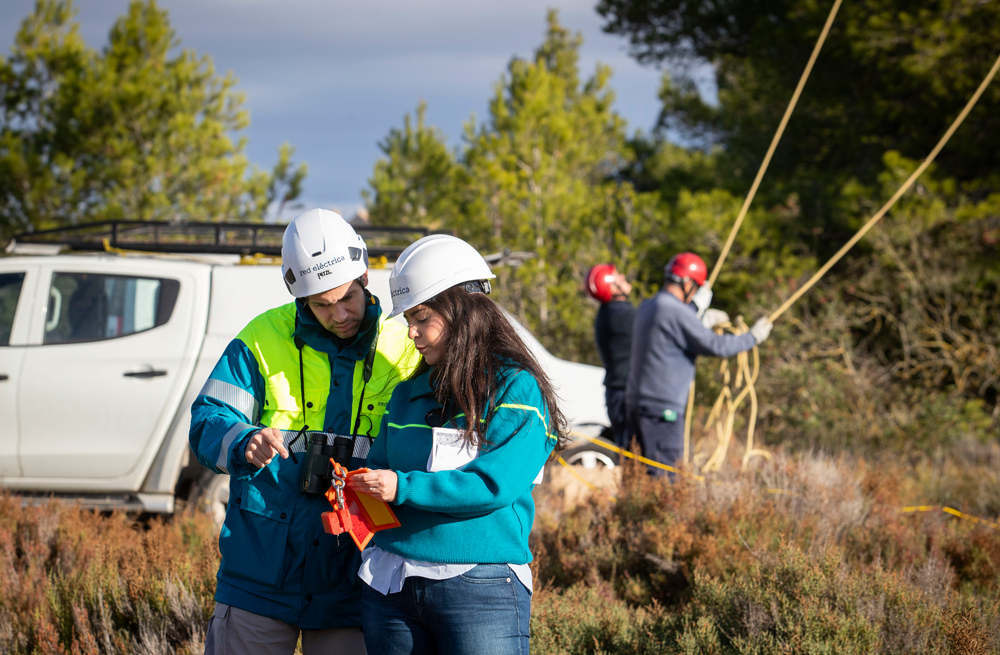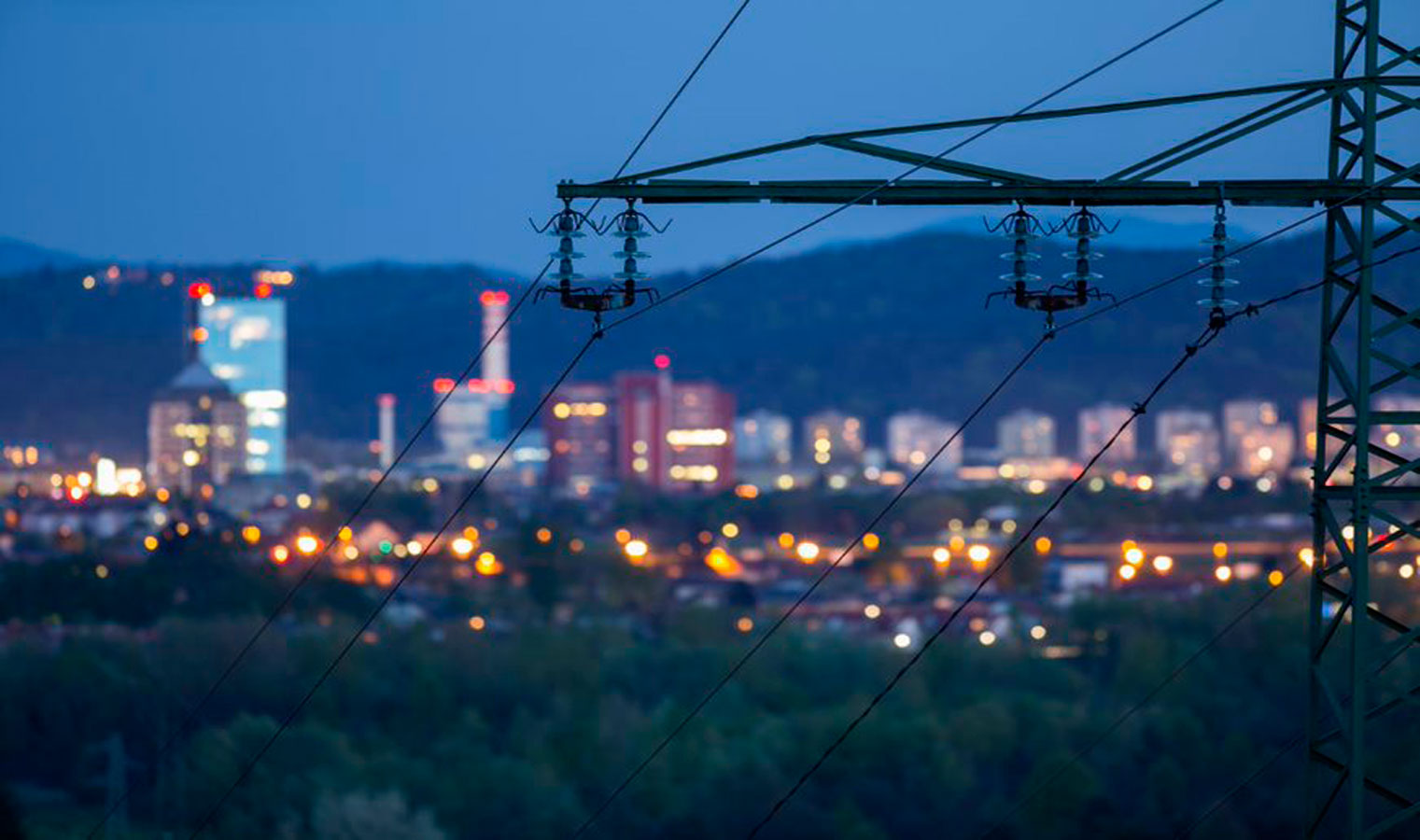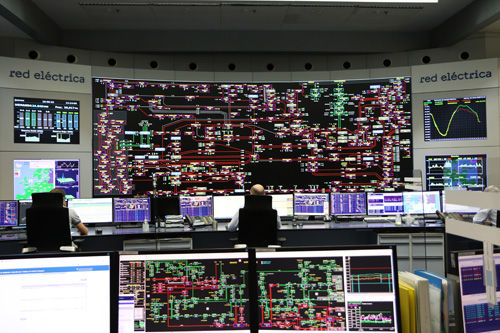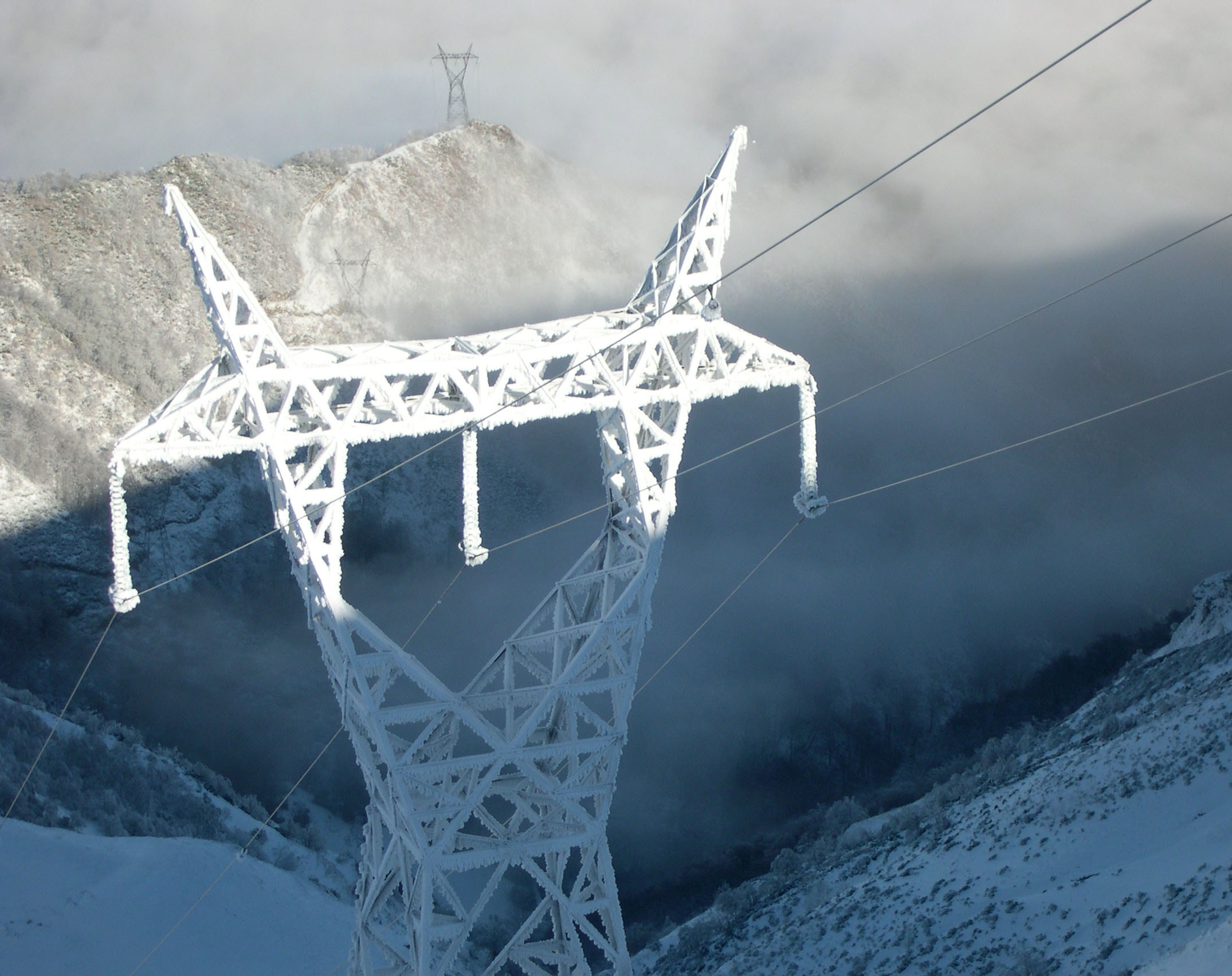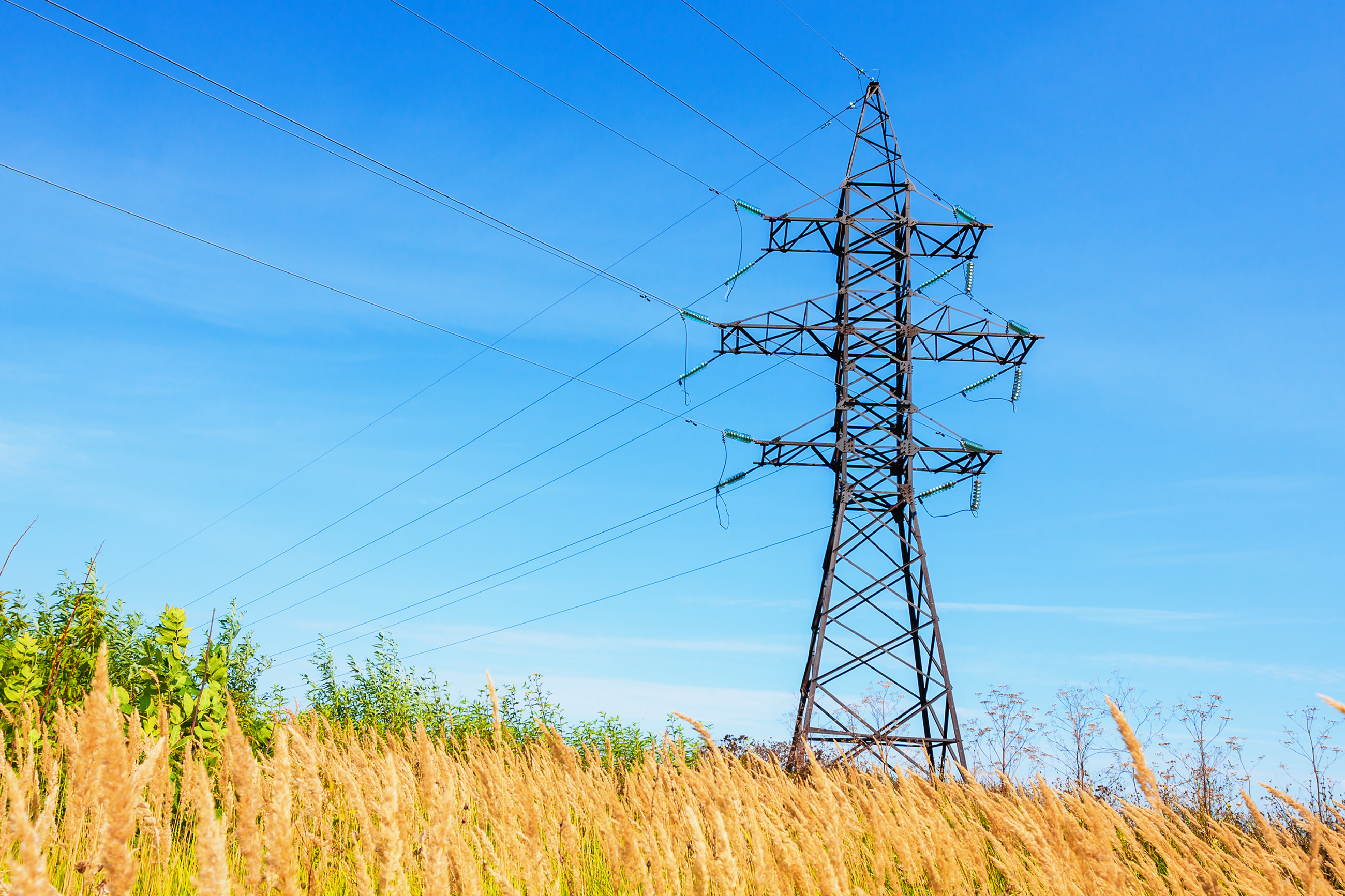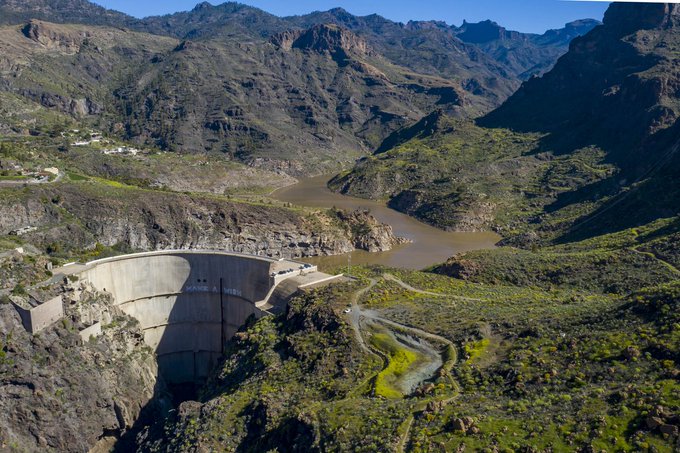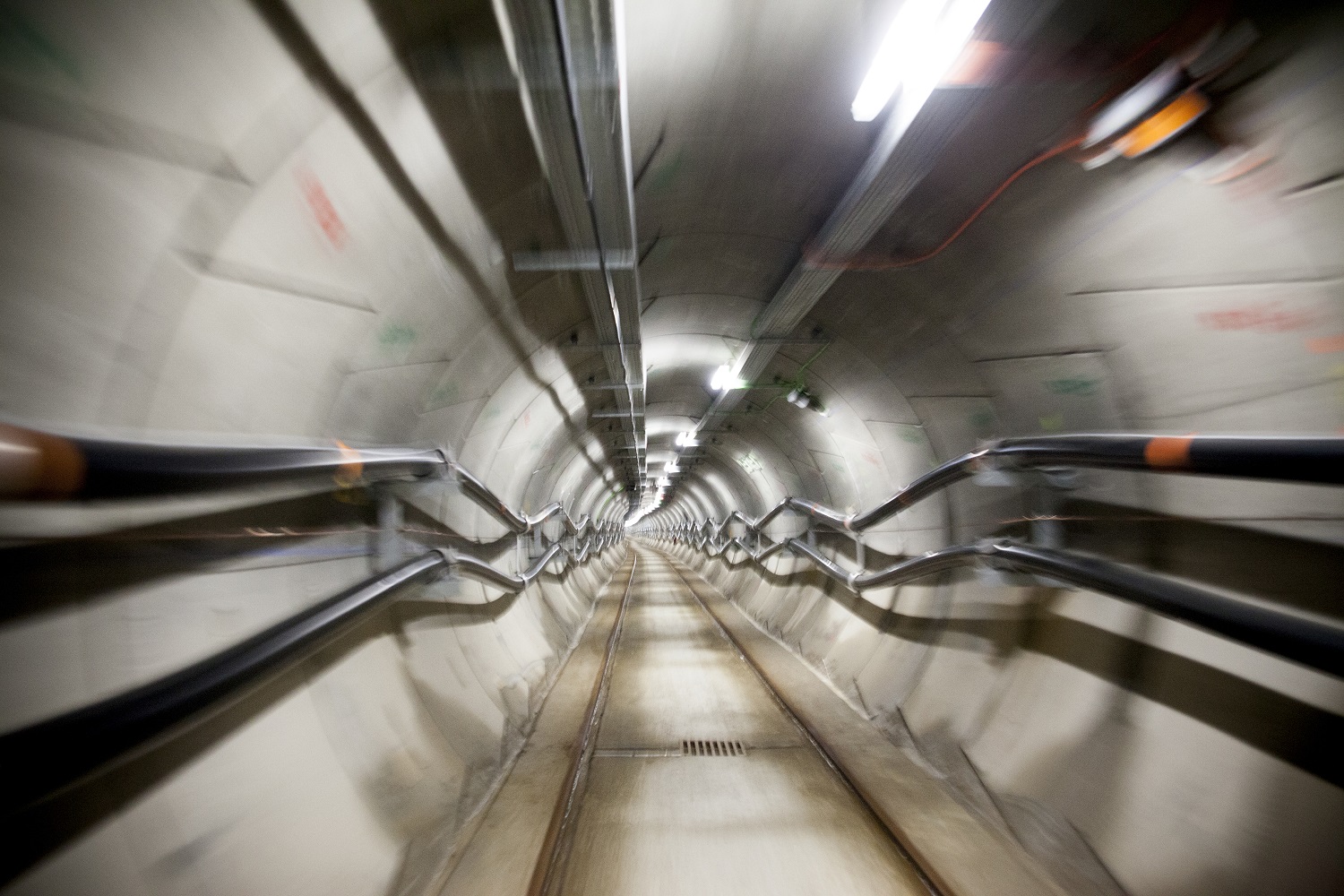Discover what Red Eléctrica is, what we do, and why we are the backbone of the electricity system in Spain and the ecological transition.
Red Eléctrica and IMEDEA plant about 8,000 Posidonia fragments as part of the Marine Forest project
- 60% of the total area included in the project will have been replanted by the end of May.
- Red Eléctrica's initiative includes the restoration of two hectares of Posidonia seagrass meadow in Punta l'Avançada in Port de Pollença under the scientific supervision of IMEDEA.
Red Eléctrica de España and IMEDEA (the Mediterranean Institute for Advanced Studies) today presented the update of the Red Eléctrica Marine Forest project that is being carried out in the Bay of Pollença and thanks to which about 8,000 Posidonia fragments will be planted by the end of May, thus recovering 60% of the total area foreseen to be restored under the initiative. The event took place at the facilities of the military airfield of Pollença and was attended by the Regional Minister for the Environment, Agriculture and Fisheries, Vicenç Vidal, who was accompanied by Red Eléctrica’s Regional Delegate in the Balearic Islands, Eduardo Maynau, and the Director of IMEDEA, Jorge Terrados.
The Red Eléctrica Marine Forest project encompasses the restoration of two hectares of Posidonia seagrass meadow in Punta l'Avançada of Port de Pollença under the scientific supervision of IMEDEA, and is carried out in collaboration with the Government of the Balearic Islands, pursuant to the agreement signed in October 2017, and with the cooperation of the military airfield of Pollença, which has made part of its facilities available to house the logistics support of the works.
To date, the Red Eléctrica Marine Forest already has three planted areas restored in March and November-December 2018, and the one that is being carried out at the moment and that will conclude at the end of May. In addition, later this year a final area will be replanted and restored as part of the project. Once the planting works that are being conducted are completed, up to 15,000 square metres of the projected 20,000 square metres will have been recovered, and approximately 8,000 Posidonia fragments will have been planted, out of the 12,800 foreseen.
For the seagrass meadow restoration tasks, the methodology used for the collection, cultivation and planting of Posidonia in the R&D+i project previously carried out by Red Eléctrica and IMEDEA in the bays of Santa Ponça, in Majorca, and Talamanca, in Ibiza, has been applied. The project also includes the detailed monitoring of the planted fragments and the recovery of the seagrass meadows as a whole. In this way, the evolution of the associated biological ecosystem (fish, epifauna and macroalgae) is studied and the development of the physical-chemical characteristics of the plantation and the sediment can also be analysed. The analysis work is carried out by comparing the characteristics in three determined zones: that of the replanted area, the degraded zone that has not been restored and that of established seagrass meadows that are in good condition.
In addition, as part of the project, since last March the entire area replanted in Punta l'Avançada has been delimited and marked off using buoys to preserve the replanted areas and to avoid the anchoring of boats in the restored seagrass area.
Posidonia in the classroom
Within the framework of Red Eléctrica's Marine Forest project, the educational project ‘Posidonia in the classroom’ is also being carried out, so that primary and secondary school students can learn about the importance of Posidonia oceanica seagrass meadows as conducive environments for marine life. Aquariums in the classrooms, with adult plant fragments, reproduce a miniature Posidonia ‘marine forest’ and enable students to discover the biodiversity of the seagrass meadows.
Throughout this school year the initiative has been conducted as a pilot project in several schools in Majorca (CEIP Costa i Llobera de Marratxí, CEIP Mestre Colom of Bunyola and CEIP Vora Mar de Ca'n Picafort) and in the 2019-2020 school year it will be rolled out to some fifteen more educational centres.
The Red Eléctrica Marine Forest showcases the Company's commitment to sustainable development and biological diversity through its environmental policy and as part of its 2030 Sustainability Commitment.
